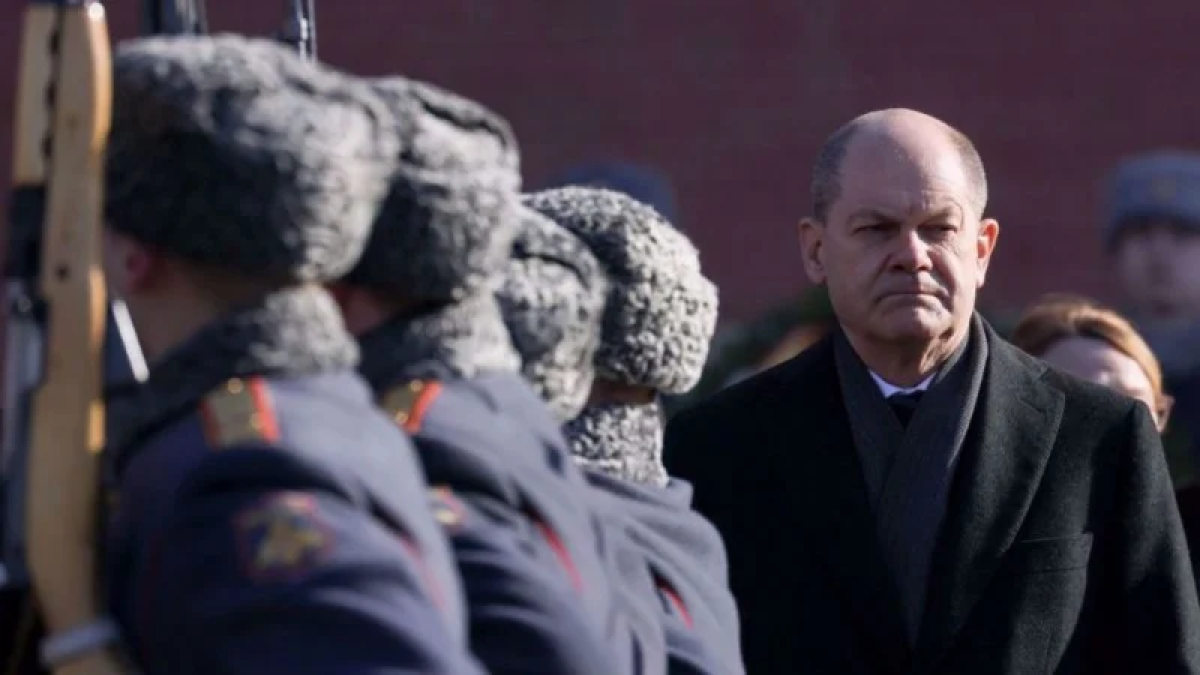 370
370
A year after taking office, the government of Olaf Scholz had to rethink its bold program. It was to be the most progressive government in Germany for a generation; already, these lofty ambitions have been eclipsed by a war in Europe that has plunged the country into an energy crisis, ravaged its public finances and radically reorganized its political agenda.
Olaf Scholz was sworn in as German Chancellor last December, leading an unprecedented three-party coalition of Social Democrats, Greens and Free Democrats that promised a “fresh start” after 16 years of rule by Angela Merkel; his 141-page coalition agreement was titled: “ Dare to make more progress ”, writes the Financial Times in a note published on Tuesday, December 13.
But the Russian special operation in Ukraine in February put a damper on action. “ They promised a new awakening, but there isn’t much left,” said Andrea Römmele, professor of political communication at the Hertie School in Berlin. “Instead, they’re stuck in a kind of permanent crisis mode. »
Former mayor of Hamburg, Scholz had promised “Germany’s greatest industrial modernization for more than a hundred years”. The country, he promised, would green its economy and become a “pioneer in climate protection”.
Instead, most of the government’s energy has been spent keeping the lights on. Since Russia’s decision to cut gas exports to Europe over the summer, Scholz’s priority has been securing alternative supplies and averting the prospect of blackouts and gas rationing this winter.
In this he largely succeeded. “ Germany withstands winter and is immune to crises ”, the Chancellor told MPs last month. The government has spent billions to improve Germany’s energy security, build a liquefied natural gas import terminal in record time, ensure gas tanks are 100% full and take control of two troubled gas importers, at a huge cost to the public purse.
Scholz also passed 300 billion euros in emergency aid to cushion the impact of rising energy costs on businesses and households, breaking the previous record for state support set during the pandemic — when he was finance minister.
He also kept a campaign promise to raise the minimum wage, reform Germany’s widely hated unemployment benefit system and create a 100 billion euro investment fund for the Bundeswehr, pledging to reverse years of underfunding of the armed forces.
But all of this came at a cost. The new government is taking on around half a trillion euros in new debt — a particularly bitter pill for one of the coalition partners, the fiscally conservative Liberal Democrats (FDP). And because the FDP insists that Germany reinstate its “debt brake” next year, the constitutional cap on new borrowing suspended during the pandemic, much of the crisis spending is being channeled through off-road vehicles. balance sheet — a tactic that many economists find questionable.
“In the long term, all these shadow budgets will lead to a palpable increase in German public debt,” Jun said. The huge increase in spending may have been difficult for the FDP to bear. But the Greens also had to make painful compromises. They agreed to the reopening of mothballed coal-fired power plants and a three-and-a-half-month extension of the life of Germany’s last nuclear reactors.
At times, these renegotiations have caused tensions that have threatened governmental stability. In October, Scholz was forced to assert his authority as chancellor — a rare occurrence in German politics — to resolve a dispute over the future of nuclear power between the Greens and the FDP.
The two sides also agreed on a controversial tax on gas consumers, designed to bail out gas importers such as Uniper, which was imposed by the Greens-controlled economy ministry. The dispute lasted until Uniper was nationalized and the idea of the levy was dropped.
Comment
Post a comment for this article